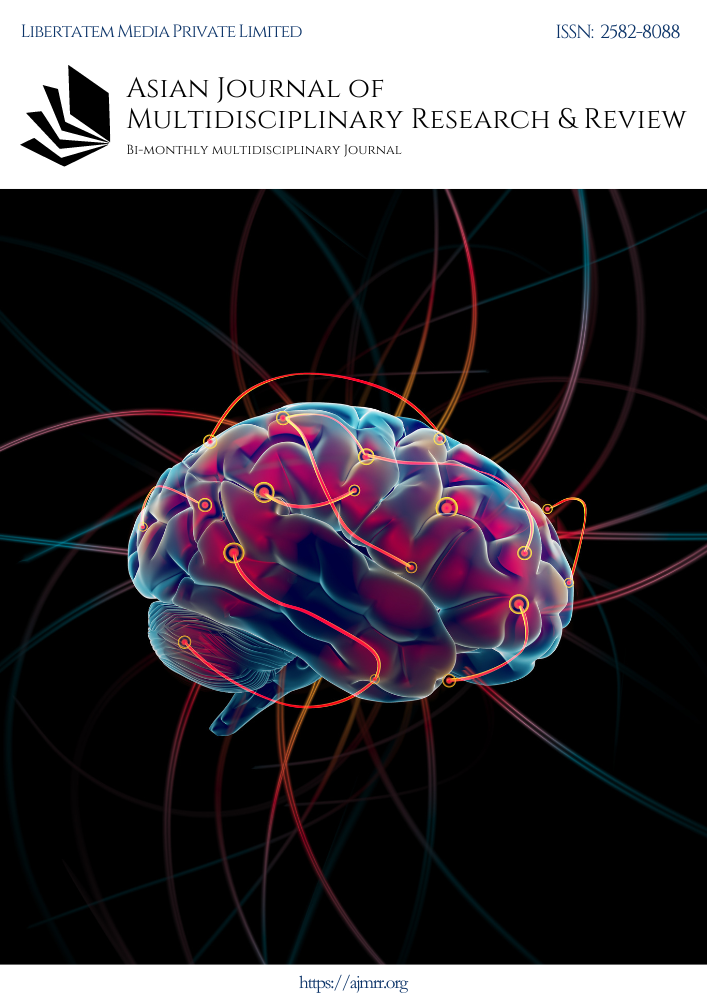THE RELEVANCE OF ALBERT CAMUS IN THE CONTEMPORARY WORLD
Keywords:
existentialism, CamusAbstract
Albert Camus was a French philosopher, thinker, writer and journalist from Algeria. He had witnessed both the world wars and was part of the French Resistance army fighting against Nazi occupation of France during 1940-45. Along with Nietzsche, Kirkegaard, and Sartre, Camus was called an Existentialist. However, he rejected the label and reiterated that he belonged to the Absurd school of philosophy. He felt life had become meaningless and hopelessness was seen everywhere. The war itself was absurd as killing of innocents could not be justified by any just cause. Life was capricious because the universe was irrational. The interaction between the rational human being and the irrational universe produced the absurdity in life. Among his works three of his seminal works have been chosen for discussion in this essay. The novel he wrote in 1946, The Plague, The essay he wrote in 1942 of Myth of Sisyphus and the lecture he delivered to an audience in New York in 1946 titled “The Human Crisis.” In the world today, when terror has gripped humanity and made life more and more uncertain; the outbreak of a strange virus that became a pandemic in 2020-2021 killing more people than any war has done so far, Camus’ philosophy and novel has become increasingly meaningful as well as relevant
Downloads
Downloads
Published
Issue
Section
License

This work is licensed under a Creative Commons Attribution-NonCommercial-ShareAlike 4.0 International License.
License Terms
Ownership and Licensing:
Authors of research papers submitted to the Asian Journal of Multidisciplinary Research & Review (AJMRR) retain the copyright of their work while granting the journal certain rights. Authors maintain ownership of the copyright and grant the journal a right of first publication. Simultaneously, authors agree to license their research papers under the Creative Commons Attribution-ShareAlike 4.0 International (CC BY-SA 4.0) License.
License Permissions:
Under the CC BY-SA 4.0 License, others are permitted to share and adapt the work, even for commercial purposes, as long as proper attribution is given to the authors and acknowledgment is made of the initial publication in the Asian Journal of Multidisciplinary Research & Review. This license allows for the broad dissemination and utilization of research papers.
Additional Distribution Arrangements:
Authors are free to enter into separate contractual arrangements for the non-exclusive distribution of the journal's published version of the work (e.g., posting it to institutional repositories or publishing it in books), provided they acknowledge the initial publication of the work in the Asian Journal of Multidisciplinary Research & Review.
Online Posting:
Authors are encouraged to share their work online (e.g., in institutional repositories or on personal websites) both prior to and during the submission process to the journal. This practice can lead to productive exchanges and greater citation of published work.
Responsibility and Liability:
Authors are responsible for ensuring that their research papers do not infringe upon the copyright, privacy, or other rights of any third party. The Asian Journal of Multidisciplinary Research & Review disclaims any liability or responsibility for any copyright infringement or violation of third-party rights in the research papers.



